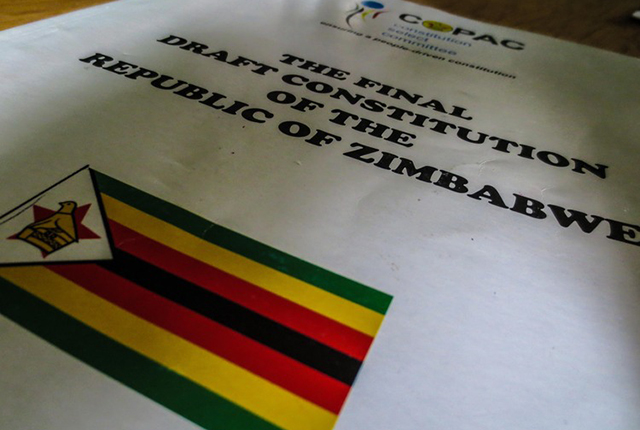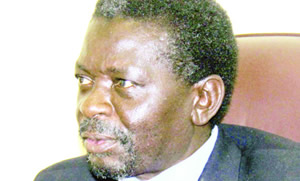Pointless laws and codes


The Constitution is very clear on S106(3) that there should be an Act of Parliament to direct and dictate how top officials of the State should behave
Nick Mangwana View from the Diaspora
It is understandable that the Government of Zimbabwe is trying its best to align laws with the Zimbabwean Constitution. This process is frustratingly taking its time and some are questioning whether there is political will to do this.Those responsible would be the best placed to answer the question of whether they are motivated enough or this delay is informed by something else.
Some of the tidying up of the laws is just that. But there are some of the Acts of Parliament which the nation hopes would change the complexion of public governance in Zimbabwe.
One of those is the Act of Parliament, which will prescribe a Code of Conduct for Vice Presidents, ministers and their deputies. But will that make any difference?
The Constitution is very clear on S106(3) that there should be an Act of Parliament to direct and dictate how these very top officials of the State should behave.
The public realises that if this was about health, we would be talking of a blue light emergency.
We have top public officials in the mould of Vice Presidents, ministers, and deputy ministers, who are perceived by the public to be totally out of control.
Whether it is perception only or there is substance, the public probably knows and but certainly there is something which undermines public confidence in the Government.
This erodes the goodwill of the people and other stakeholders which every government needs in order to successfully implement its programmes.
Maybe it would help to highlight with examples of conduct which would be governed by this Code of Conduct.
There has been a lot of rumours and whispers that have depreciated the reputation of a very top government official.
It is alleged that they conducted a “jail break” and sprung out suspects who had been arrested for corruption and abuse of office. Of course there is a big chance that these are highly dramatised if not exaggerated events.
Surely, how can it be true that a person of that official stature would roll up their sleeves or worse and threaten to do a Charles Manyuchi on some scared, cowering and hungry police constable?
This sounds so untrue. But one never knows. But if it is true, then that would be conduct unbecoming and there would be no doubt that this would fall foul of the anticipated Code of Conduct. How about this other one?
Recently, we have been reading a lot about “fuzzy” use of public funds to pay equally fuzzy deals with fuzzy companies which deal with related fuzzy technologies.
One hopes there is an innocent explanation but it appears an admission has already been made and part of the rumours is confirmed.
This is in spite of the Constitution being very clear on s106 (2)(c) that no Vice President, minister or deputy minister may use their position or any information entrusted to them to enrich themselves or improperly benefit any other person.
To expect a government that does not visibly act on those that make these fuzzy disbursements of public funds under their stewardship to have the confidence of the public on its side will be to expect too much of the public.
In fact, whoever expects public goodwill when rills and rills of publication space is consumed by these stories is taking the people of Zimbabwe for granted.
It is such things that have caused some to be indifferent to the call for a Code of Conduct as prescribed by the Constitution.
This is because the efficacy of such an instrument is already in doubt considering that there are laws in place already that could be used to prosecute the above mentioned conduct or misconduct in public office.
There are laws related to defeating the course of justice or interfering with a police officer that could be used against the reported jail break.
When it comes to the fuzzy disbursements and related fuzzy bicycles, some say there are a dozen statutes that could have been applied. This is why they contend that a Code of Conduct would have no capacity to produce the desired result because of our political culture ,which we have started to misinterpret as the law.
An example of that is that it is courteous to inform the Head of the Executive that you are going to arrest one of his ministers. But it is not a legal requirement. But because we have let fuzzy lines replace the distinct lines that distinguish political customs with statutory requirements, we have let those customs and courtesies ride roughshod over our laws and public officials get away with the “bag”.
If minsters are breaking the law, that’s already in place, how would a Code of Conduct, which in most cases is an aspirational statement of civic ambition, going to make a difference in a culture where the word “impunity” is fast losing its meaning?
We have a culture where our public officials live jet-set lives. They look at you in bewilderment when they are told that it is wrong to buy a minister a £200k car when certain public services cannot be delivered because of fiscal constraints.
They might even ask you whether you expect a minister to ride a bicycle to work. You know what reader? Let us just avoid two words in this piece for the sake of peace, otherwise you will start screaming whenever you see “bicycle” or “fuzzy”.
Going back to the Code of Conduct, it is only as effective as the will to admonish and sanction a deviation from its principles and tenets.
If there is no appetite to punish a total disregard of the law, then the public should not hold its breath when it comes to this Code of Conduct for Vice Presidents, ministers and deputy ministers. Anyway, we are still a long way away from the code because the Constitution says the first thing we should have is an Act of Parliament.
It is that Act of Parliament that should prescribe the Code of Conduct. It appears this particular Act of Parliament might not happen within the current parliamentary calendar.
And negotiating the code and consulting on it might even take us to the 8th Parliament and if/when it comes it, will be just another brilliant piece of craftsmanship. Is this establishment columnist being cynical?
What do you expect? Isn’t there a code already about ministers and Vice Presidents and their obligations to attend Parliament? Well, wasn’t in Parliament just a few days ago when we were told that there are two top officials in both categories who attend only one parliamentary session a year?
One is probably right to think that this is only the day when the President addresses Parliament. Section 107(2) says it’s a “must” that every Vice President, minister and deputy minister attends Parliament. This is wantonly disregarded by some right now. And it is the Constitution.
How likely will be some code, whose contents are also likely to be compromised by the influence of those trying to protect their interests?
In fact, good governance and civic responsibility is not about statutes, codes or bills. It is about the political culture and the public’s willingness to hold to account.
The United Kingdom has no written constitution. Their constitution is pretty much about traditions, customs and public expectations. But regardless of that, very few ministers would dare break what is not even written down.
We have a lot of written laws and a brilliant Constitution but we have ministers breaking both as a matter of daily business and when they are asked, they look at the person asking them with a countenance that is wondering what the big fuss is about.
In fact, they may even decide to deploy some 140 characters on social media to say just that in a few more words.
Our minters, deputy ministers and some of their supervisors have very poor attitudes towards public accountability.
Their behaviour is not governed by anything except a grandiose sense of entitlement because they just happen to be in a position of power.
They bring the President’s name into disrepute because we hear them say so much about only accounting to the appointer and that they will only care about what the appointer thinks.
Well Cde Vice President or Cde Minister, your appointer accounts to their own appointer too.
And that is the Zimbabwean public. So the best way of accounting to your appointer is to account to the masses of our beautiful country. When they say that certain actions are contrary to their interests, take heed.
Laws, codes, statutes and moral values are only as important as our willingness and attitudes to living by them.
We should not enact laws as a bureaucratic exercise or as some contingent weapon to use on others when it is convenient for us to do so.
The same laws we apply against others should be applied on ourselves.
When we fought for our independence, it was to make all of us equal before the law.
Then it was racism which was the un-equaliser. Now it is political station.
Handizvo zvatakarwira (that’s not what we fought the liberation war for).







Comments